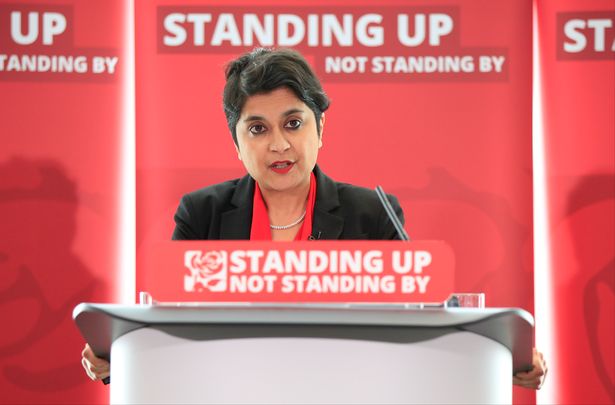Jonathan Rosenhead.
In this comment I will try to sketch out
- the background to the Chakrabarti Inquiry
- a summary of the Report’s conclusions
- how it has been received by those who generated the panic
- a scorecard of what it has achieved and avoided.
Despite having been Jewish all my life I have only experienced two antisemitic incidents. Neither had anything to do with the Labour Party. And I first joined the party in 1961! This is not a uniquely charmed life. The ex-Chief Rabbi Jonathan Sachs, interviewed on television, rather embarrassedly confessed that he had not himself experienced a single antisemitic incident. There can be no doubt that antisemitism, an ugly deformation in any society, has a continuing underground life in Britain as elsewhere, and that we should be alert to its existence and possible increase. But its public manifestations are currently so small that it is really impossible to say whether it is actually going up or down.
How then to explain the moral panic over antisemitism, specifically in the Labour Party, that struck the UK body politic earlier this year? There is ample circumstantial evidence that it is the result of a manoeuvre, brilliantly successful, perpetrated (if that is the right word, and I think it is) as a joint enterprise by the friends of Israel and the enemies of Corbyn. These two groups, whose memberships overlap, made common cause, exploiting both their network of contacts in the media and the paid PR apparatus that boosts Israel wrong or wrong. The cause is common because the Labour Party enemies of Corbyn resent his election and are determined to take ‘their’ party back, while Israel has every reason to try to reverse the innovation of a major UK party leader who is a committed supporter of the Palestinian cause.
The Inquiry
Although quite wonderful in many ways Jeremy Corbyn is perhaps not a natural leader for a party or a movement; nor is he fleet of foot in dodging enemy bullets or turning them back on their originators. Which makes the establishment of an inquiry into Antisemitism and Other Forms of Racism in the Labour Party almost the exception that proves the rule. It was an intervention which quelled the hubbub, in particular because the chair of the Inquiry, Shami Chakrabarti, has such an unshakeable reputation for probity, and indeed a strong public affection. Her assistants, David Feldman and Janet Royall provided the necessary backup in terms, respectively, of antisemitism and the workings of the Labour Party. But they did not write or have to approve the Report. It is hers.
The report lists 85 organisational submissions, and there was also an unknown number (probably large) of individual contributions. Judging by their names about 30 of the organisations are likely to have taken what I will for convenience call a ‘pro-Israeli’ line (stressing antisemitism as a crisis needing strong action); and some 20 came from explicitly pro-Palestinian organisations. Another 10 came from within the trade union and Labour movement, while 10 came from other religiously-identified groups, mostly Muslim. (Not all are easily classifiable in this way.) The submissions by the considerable group of Jewish organisations that mobilised against the moral panic are collected together at the Free Speech on Israel website. (For completeness, a collection of opposing submissions is also available.)
Given the copious leaks about suspensions from the Labour Party that could only have come from the Labour’s HQ bureaucracy (effectively working for dissident MPs rather than the elected party leader) unusual precautions were taken about the report launch. The aim was to avoid selective leaks with their accompanying negative spin. Only one copy of the text was produced and, so we are informed, that was passed directly from Chakrabarti to Corbyn. However….
The Report
The launch of the report, despite measured speeches by Chakrabarti and Corbyn, was effectively hijacked by a press corps which only wanted to ask the latter about his travails with disloyal MPs, and by media-oriented stunts about antisemitism of exactly the kind that provoked the Inquiry in the first place. The result is that the content of this significant report has not had the attention that it deserves.
Any summary of the report is bound to be selective. The points I would pick out are Continue reading “Chakrabarti Rocks”



